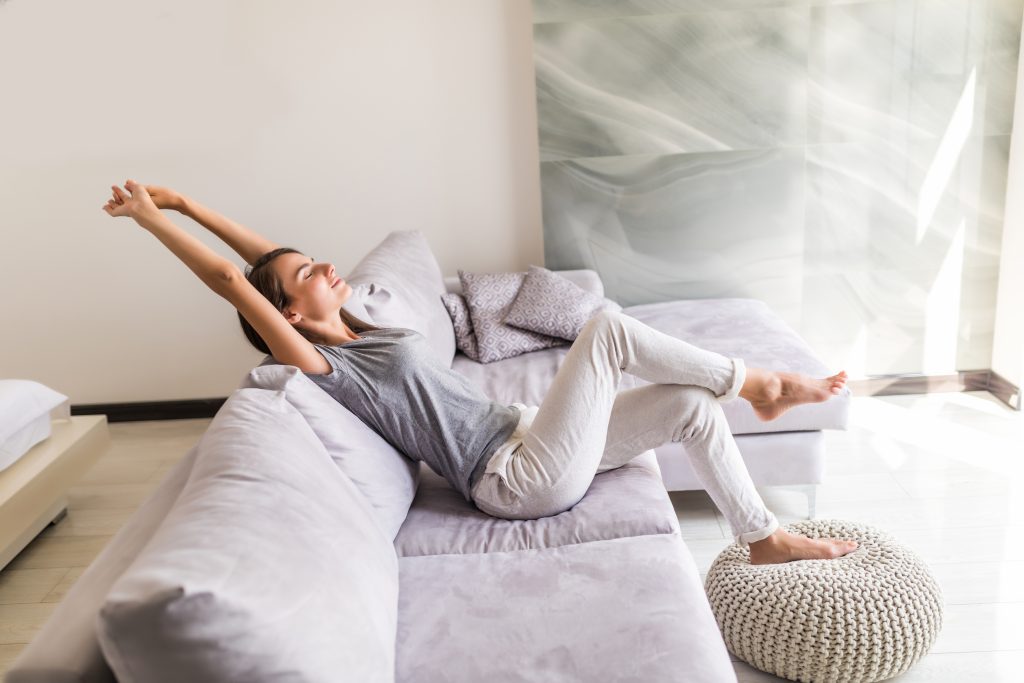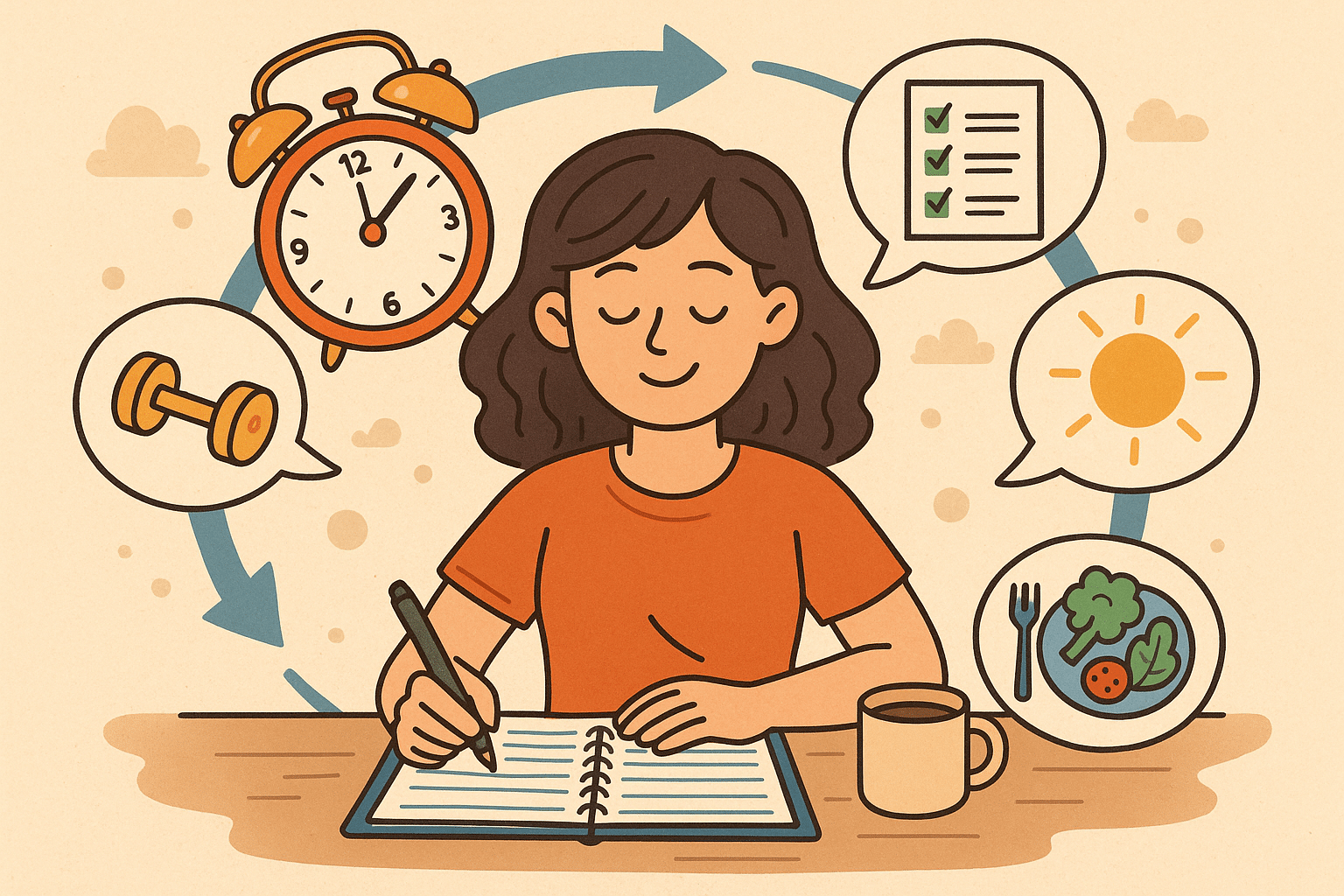In today’s hyper-connected world, the idea of rest often gets sidelined in favor of work, social obligations, and constant stimulation. But as recent research shows, the consequences of neglecting rest are profound—not only on our physical health but also on our mental well-being. Here’s why planning for rest should be a non-negotiable aspect of your daily routine and why prioritizing sleep and relaxation is essential for leading a healthier and more productive life.

The Rest Revolution: Why Sleep Has Never Been More Crucial
Recent trends show a growing awareness of the vital role that rest plays in overall health. From sleep trackers to wellness apps that monitor heart rate variability, the sleep industry is booming, and it’s no surprise. As the World Health Organization (WHO) has pointed out, sleep is a cornerstone of well-being, affecting everything from memory and cognitive function to immune health and emotional regulation (WHO, 2022).
But it’s not just about sleep—there’s a broader movement toward prioritizing relaxation and downtime in all forms. Whether it’s taking short breaks during the workday or ensuring an evening wind-down routine, rest is becoming an increasingly essential tool for mental and physical regeneration.
The Impact of Chronic Sleep Deprivation
The effects of poor sleep or chronic sleep deprivation are far-reaching. The Centers for Disease Control and Prevention (CDC) has identified insufficient sleep as a public health concern, linking it to a range of conditions like heart disease, diabetes, obesity, and stroke (CDC, 2020). But beyond the obvious physical health risks, lack of sleep also affects our mood, decision-making, and ability to concentrate.
In a society that prizes hustle culture and “being busy,” many people push through their fatigue, unaware of how damaging this can be in the long run. Ironically, pushing ourselves too hard can actually hinder productivity. According to recent research from the Harvard Business Review, a lack of rest reduces focus and productivity, meaning that taking time off to recharge actually increases efficiency in the long term (Harvard Business Review, 2023).
Building a Restful Routine: Practical Tips to Make Rest a Priority
To get started with creating a restful routine, consider these practical tips to help integrate rest into your day:
- Create a Consistent Sleep Schedule: Going to bed and waking up at the same time every day helps regulate your body’s internal clock. Aim for 7-9 hours of sleep per night to optimize rest and recovery.
- Incorporate Short Breaks: During your workday, take brief breaks every 60-90 minutes. A quick 5-minute walk or some light stretching can refresh your mind and boost productivity.
- Wind-Down Rituals: Instead of scrolling through your phone before bed, engage in a relaxing activity—such as reading a book, meditating, or taking a warm bath. Avoiding screens before bedtime improves sleep quality by reducing blue light exposure, which can interfere with your body’s ability to fall asleep.
- Exercise for Better Sleep: Regular physical activity is a great way to improve sleep quality, but be mindful not to exercise too close to bedtime, as it can actually disrupt sleep if done late in the evening.
- Practice Mindfulness and Meditation: Incorporating a daily mindfulness or meditation practice can help reduce stress and improve your ability to unwind, making it easier to fall asleep.
The Role of Technology in Improving Sleep
Technology is increasingly playing a role in helping individuals manage their sleep habits. Smartwatches, sleep trackers, and apps that monitor sleep cycles are providing insights into sleep patterns that were once difficult to track. These devices help users understand the quality of their rest and give them data to make better decisions about their sleep routines. While some critics argue that the overuse of technology can disrupt sleep, these innovations have proven to be a helpful tool for many people looking to optimize their rest.
Moreover, white noise machines, blue light filters for screens, and apps designed for relaxation and sleep induction (like Calm or Headspace) are growing in popularity as people seek to create a restful environment that supports better sleep.
The Financial Cost of Poor Rest
It’s also worth considering the financial impact of poor sleep and relaxation habits. In addition to the healthcare costs associated with chronic sleep deprivation, the effect on productivity can also be costly. According to a report from the National Sleep Foundation, companies in the U.S. lose up to 411 billion dollars annually due to poor sleep among employees (National Sleep Foundation, 2020). When workers are not adequately rested, their performance suffers, which affects the overall economy. Investing in sleep hygiene, rest, and relaxation isn’t just beneficial for individuals—it’s also an investment in the productivity and success of organizations.
Rest as a Tool for Mental Health
Beyond the physical effects, rest plays a crucial role in mental health. Chronic stress, anxiety, and depression can worsen when the mind doesn’t get enough downtime. As psychologist Dr. Matthew Walker, author of Why We Sleep, notes, lack of sleep leads to an overactive emotional brain. By allowing yourself sufficient rest, you provide your brain the opportunity to process emotions, store memories, and heal emotionally. Mental health, just like physical health, thrives when rest is prioritized.
Final Thoughts: Rest Is an Investment, Not a Luxury
Incorporating adequate rest into your daily routine is not a luxury—it’s a vital part of maintaining a balanced, healthy lifestyle. The societal shift toward acknowledging rest as an essential part of wellness is long overdue. By planning for rest, we’re not just taking care of our physical bodies; we’re also investing in our mental clarity, emotional well-being, and productivity.
To reap the full benefits of rest, we must rethink how we view downtime. Rest is not a sign of weakness or laziness. Instead, it’s a necessary part of the human experience that allows us to show up better for ourselves, our work, and the people we care about.
References
- Centers for Disease Control and Prevention (CDC). (2020). “Sleep and Sleep Disorders.” Available at: https://www.cdc.gov (Accessed: 2 July 2025).
- World Health Organization (WHO). (2022). “Sleep and Health.” Available at: https://www.who.int (Accessed: 2 July 2025).
- Harvard Business Review. (2023). “The Benefits of Taking Breaks at Work.” Available at: https://hbr.org (Accessed: 2 July 2025).






